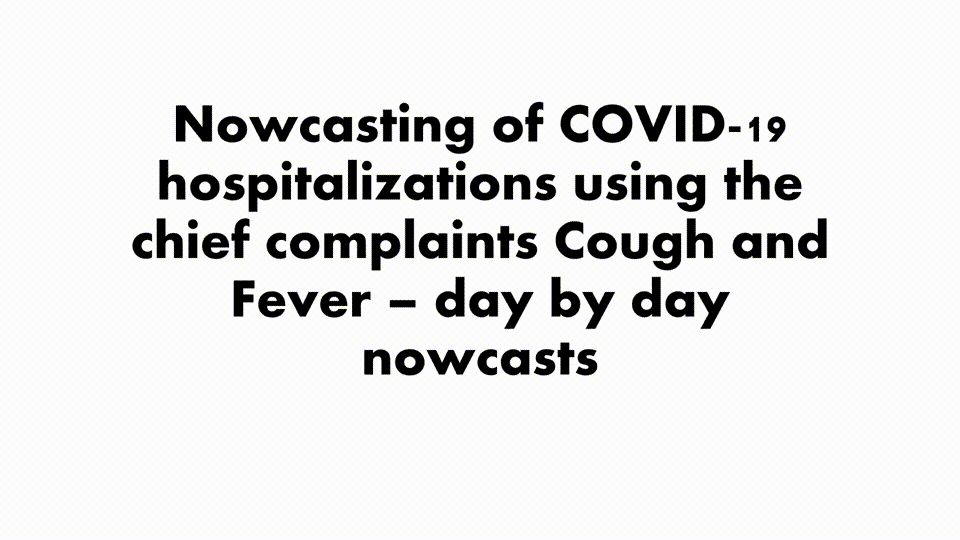Nowcasting (Short-Term Forecasting) of COVID-19 Hospitalizations Using Syndromic Healthcare Data, Sweden, 2020
Armin Spreco

, Anna Jöud, Olle Eriksson, Kristian Soltesz, Reidar Källström, Örjan Dahlström, Henrik Eriksson, Joakim Ekberg, Carl-Oscar Jonson, Carl-Johan Fraenkel, Torbjörn Lundh, Philip Gerlee, Fredrik Gustafsson, and Toomas Timpka
Author affiliations: Linköping University, Linköping, Sweden (A. Spreco, O. Eriksson, R. Källström, Ö. Dahlström, H. Eriksson J. Ekberg, C.-O. Jonson, F. Gustafsson, T. Timpka); Region Östergötland, Linköping (A. Spreco, R. Källström, J. Ekberg, C.-O. Jonson, T. Timpka); Lund University, Lund, Sweden (A. Jöud, K. Soltesz); Skåne University Hospital, Lund (A. Jöud. C.-J. Fraenkel); Chalmers University of Technology, Gothenburg, Sweden (T. Lundh, P. Gerlee); Gothenburg University, Gothenburg (T. Lundh, P. Gerlee)
Main Article
Video

Video. Nowcasting performance using the telenursing chief complaints cough by adult and fever by adult separately during the first wave of the COVID-19 pandemic in Östergötland County, Sweden. The time series have been smoothed with a 7-day moving average to eliminate weekday effects. Black line indicates the actual number of hospitalizations per day that have already occurred when the nowcasts are calculated. Grey line indicates the actual number of hospitalizations per day that will be observed as time goes by but was not yet observed when the nowcasts were calculated. Blue line indicates the nowcasted number of hospitalizations per day based on cough by adult the following x days (where x is based on the best time lag of 14–21 days) from the day when the nowcasts are calculated. Red line indicates the nowcasted number of hospitalizations per day based on fever by adult for the following t days (where t is based on the best time lag of 14–21 days). COVID-19, coronavirus disease.
Main Article
Page created: January 11, 2022
Page updated: February 21, 2022
Page reviewed: February 21, 2022
The conclusions, findings, and opinions expressed by authors contributing to this journal do not necessarily reflect the official position of the U.S. Department of Health and Human Services, the Public Health Service, the Centers for Disease Control and Prevention, or the authors' affiliated institutions. Use of trade names is for identification only and does not imply endorsement by any of the groups named above.
